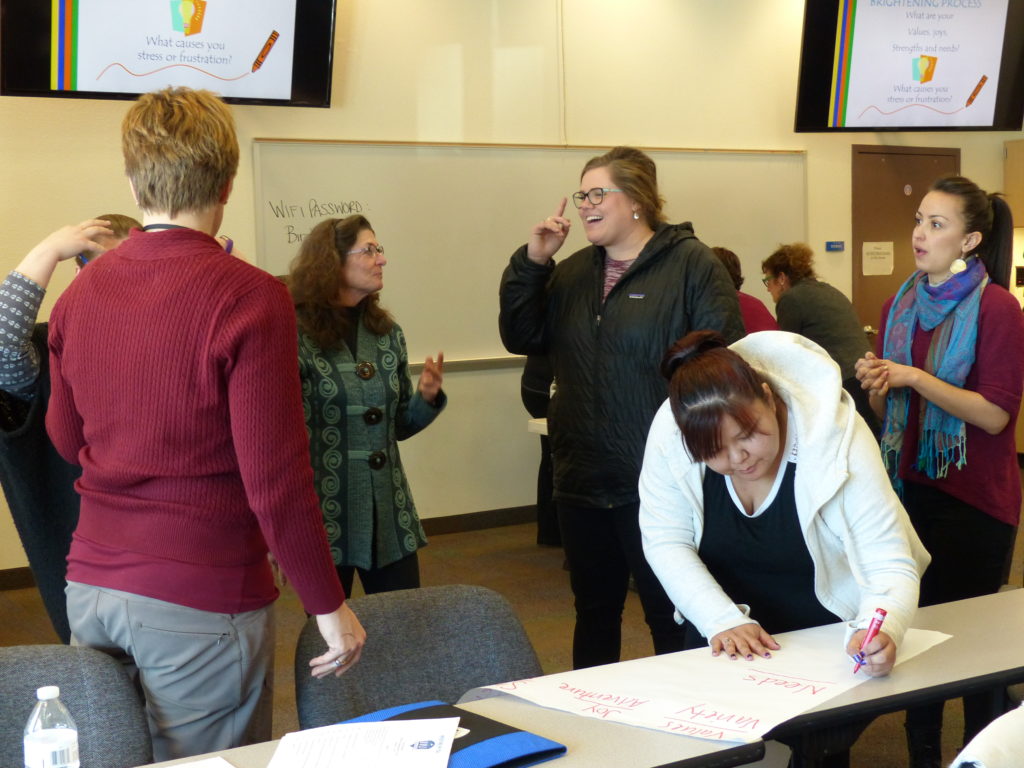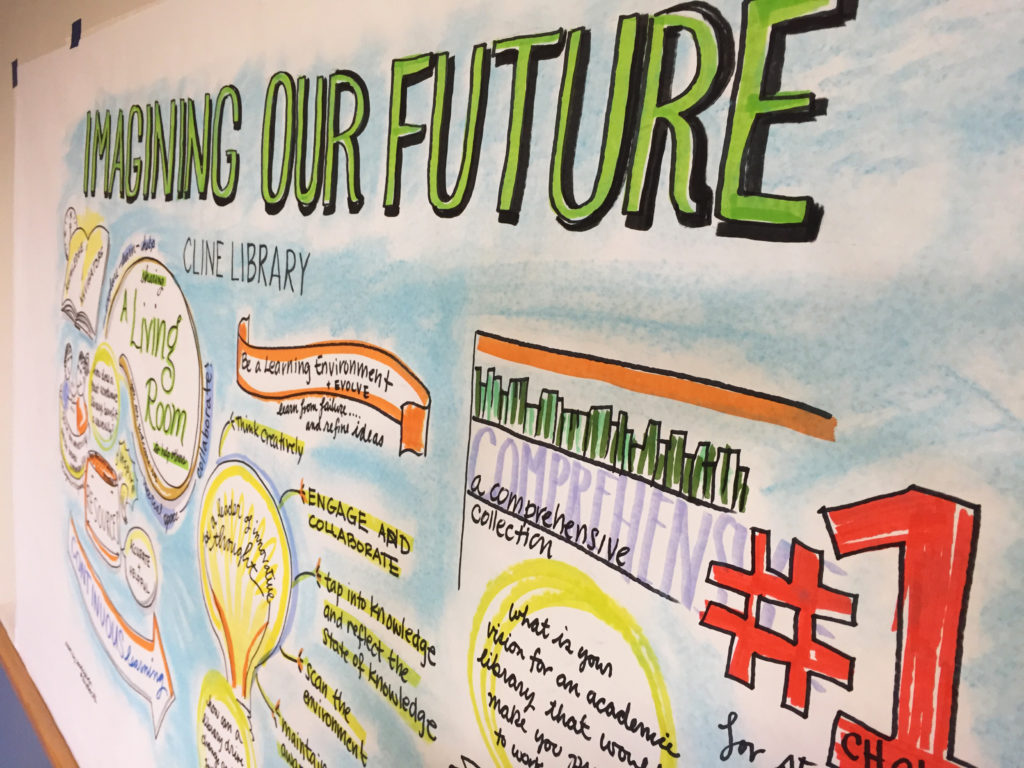Facilitation has become a buzz word. Suddenly, I am seeing requests for facilitators all over the place and people are asking me to train them in facilitation. However, what I have realized is that not everyone means the same thing when they say facilitation.
Many people in the education field are talking about the importance of facilitation. Have you heard the phrase “Sage on the Stage?” The idea is that for decades teachers and speakers were lecturing from the front of the room. They held all the knowledge and were sharing it with their audience, hoping to transfer knowledge to them. Students or audience members were seen as empty vessels and the knowledge was to be poured into them. As our understanding of education has changed, so has our understanding of the role of a teacher or speaker. Now, more and more speakers and teachers are looking to the field of facilitation for ideas of how to engage their learners in being active participants in their own learning.

As a trainer or speaker, you have specific learning objectives. You use facilitation to engage participants in learning the material and finding their own ways to relate to the material so that the knowledge is more relevant and lasting. It is all about engagement and finding ways to make concepts and information more relatable. This is NOT what I think of when I hear facilitation. This type of education facilitation is very different from the facilitation used in an organizational setting.
As an Organizational Development (OD) Consultant, I was trained in the Process Facilitation model. Process consultants use facilitation as an intervention tool to help a client define their own problem and discover their own solutions. The consultant helps the client define their desired outcomes and then helps them to design a process by which they can achieve those outcomes. Facilitation is used to ensure that everyone involved in the work is able to contribute in an equitable way so that the best possible outcome is achieved. Process Consultation or Process Facilitation was defined in the 1960s by OD practitioners like Edgar Schein.
Edgar Schein defines seven principles necessary to do this work well in his book, “Helping” (one of my favorite books!!).
- Effective help occurs when both giver and receiver are ready
- Effective help occurs when the helping relationship is perceived to be equitable
- Effective help occurs when the helper is in the proper helping role
- Everything you say or do is an intervention that determines the future of the relationship
- Effective helping starts with pure inquiry
- It is the client who owns the problem
- You never have all the answers
Unlike a trainer or speaker, a process consultant is not an expert in the subject matter. They could have no knowledge of the client’s field of knowledge. Furthermore, the consultant is an expert in process and/or organizational dynamics. They are able to use pure inquiry and observation to design processes that will help the client meet their objectives.

So, let’s say you are organizing a conference and you want to engage the participants in the learning objectives in an experiential way. You may want to hire a training facilitator to help you.
Now let’s say you are working with a committee at work to determine your long term vision and goals for the next few years. This is the perfect example of when you may want to hire a process facilitator to help you.
Some facilitators are skilled in both areas, however, some specialize in only one type of facilitation. It is important to define what you need and ask for the facilitator’s background and expertise before you hire them. If you are looking for a consultant who does process facilitation, make sure the person you are considering hiring actually has experience and training in that specific field. And vice versa if you need organizational dynamic facilitation. Ask them how they will work with your group to help you achieve your goals.
